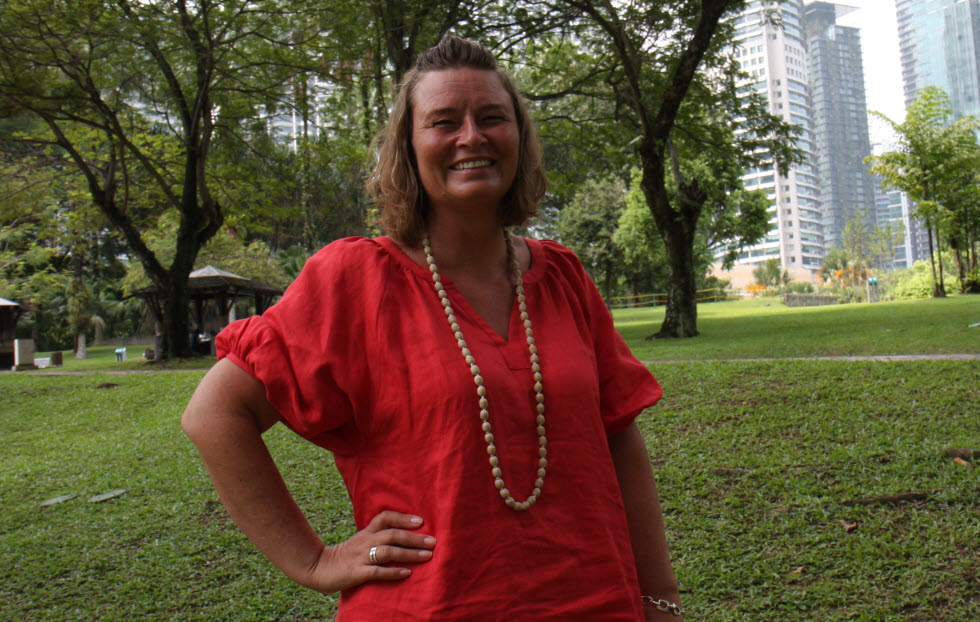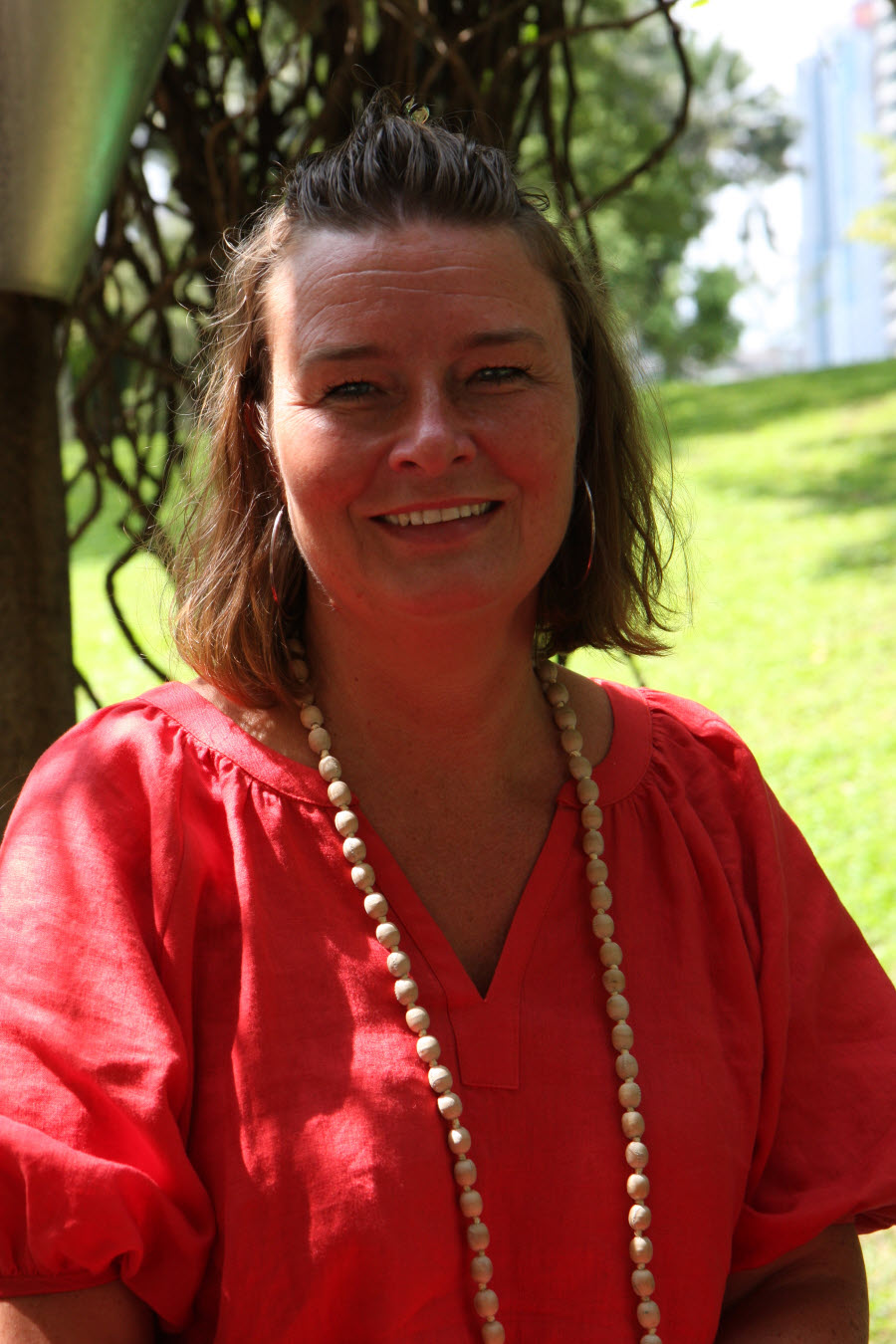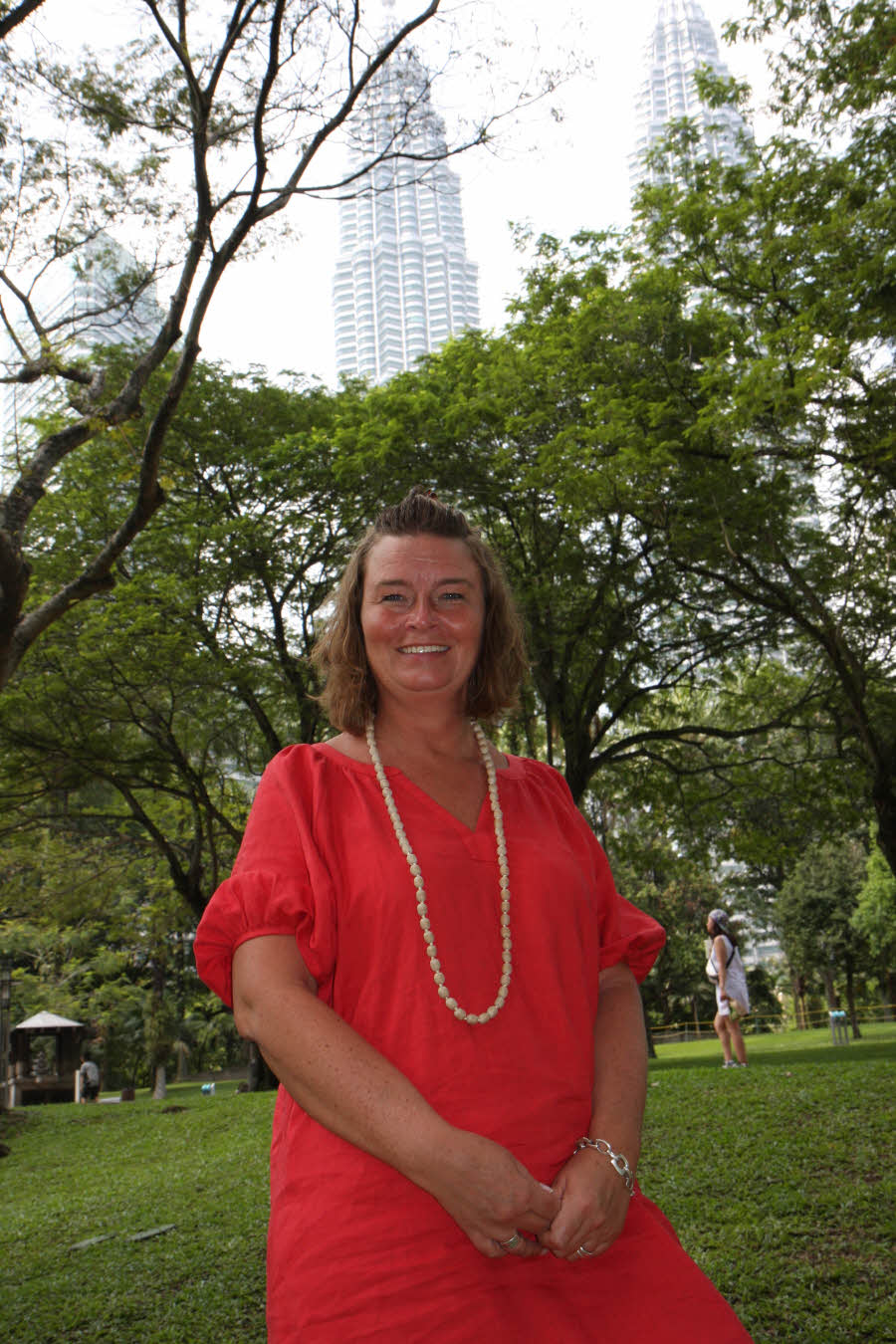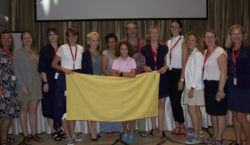SWEA International Inc. may sound like a multinational until you know the meaning of the acronym: Swedish Women’s Educational Association International. ScandAsia meets with the President for Swea in Kuala Lumpur, Pia Ridström, to get better insights into how this particular local entity works and what their activities there are.

Swea is the typical social organisation for Swedish women to turn to when arriving in a foreign country destination such as Kuala Lumpur. There may also be other individual members but usually they all have a connection to Sweden one way or the other. Depending on the location and the local Swea, and one’s individual circumstances, it might be something one is part of for a very long time. And some of course moves on to another country and joins Swea there if it is established.
Swea is also “proof” of an expatriate community still in existence, as new members keep arriving while others are more permanent (albeit much fewer Swedes in total in Kuala Lumpur now than used to be the case). For many women it is really the excellent way to find new friends during some years abroad, while usually following their husband or partner on a job posting.
In the case of Pia Ridström and her family they moved to Kuala Lumpur in August 2014, now living with her husband in a big apartment overlooking Petronas Towers.
 “My husband was travelling on the Asian market all the time and was never at home. So we said we had to do something about it. He told his company that they must move him to Asia if they wished to keep him on the job. And then we moved!” tells Pia.
“My husband was travelling on the Asian market all the time and was never at home. So we said we had to do something about it. He told his company that they must move him to Asia if they wished to keep him on the job. And then we moved!” tells Pia.
Back then their daughter also came along to do her last school year in Malaysia. Pia says her husband Anders first consulted Business Sweden how to go about having a company in Kuala Lumpur.
“They assisted that, and then we went here to look at schools first, and then homes. I had been in touch with Swea and asked them for advice. For us it was not difficult – there were only two international schools that we were interesting of which one did not have the subjects my daughter needed so then there was only one alternative left.“
Finding a school in Kuala Lumpur Pia says seems to get sorted out in most cases once one has arrived.
Their daughter has now become an air hostess with SAS, which enables her to fly frequently. They often meet up in Hong Kong where she can fly with the airline.
Blank page
While new Swedish women mostly arrive to Kuala Lumpur due to their respective spouse’s work this, it turns out, is actually quite beside the point. New members join to find friends and socialise based on the common interests within Swea; which is about anything from cosy coffee mornings in the home of various Swea women, member campaign nights, cocktail courses, wet market visits, cinema visits etc.
“For a lot of members I do not know what their spouses are doing. And when you come to Swea you can start off with a blank page; many I do not even know what they have been doing previously. It’s not like: ‘Hello, I am Malin, and I’m a nurse!’ So one can be more oneself and does not get a title. But things do come to the surface gradually. For example, we are producing a cooking book. Then one lady said that she can proofread – being a professional translator.”
There may be a few entrepreneurs among the 65 members, Pia believes, but most spouses are sent out by their companies.
Swea Kuala Lumpur is very active with something on the agenda at least weekly. Members can also chose to join groups, ‘clubs’, within special interests: golf, play, book, sport and cinema.
“We have a very active programme group and twice a year they meet and plan the activities. Lunches, breakfast meetings, seminars, adventure, weekend trips… it’s very varied,” explains Pia who basically attends all their events herself. In addition she exercises, travels frequently with her husband, goes to the movies and plays Mahjong (a Chinese kind of domino).
In terms of leisure travel they have for instance visited Redang Island and Perhentian islands. These are situated off the east coast of Peninsular Malaysia and are famous for their crystal clear waters and white sandy beaches.
“It’s a paradise feeling. There are lots of tourists going there in high season including many backpackers, and with quite a few Swedes, Russians, British and Americans. We have flown from Kuala Lumpur 7 am and have arrived to one of the islands by 1 pm for lunch.”
Getting there means travelling by air, bus and boat.
“They have fantastic beaches. I dive a bit and do snorkelling, while my husband dives a lot. We have been to Borneo as well, visiting the rainforest and seeing the bats.”
 Swedish-English cookbook
Swedish-English cookbook
As for charity Swea Kuala Lumpur has not held any charity events to collect money, though they tried to join the Christmas Bazaar in 2017. It failed because the organiser did not allow them to sell bakery – which had been their idea.
But now that cookbook with Swedish home-made food recipes is their big project, to be completed within 2018, and then published for sale.
“The bi-lingual cookbook is a concept by Swea in China, used for instance by maids to be able to cook Swedish food. And we thought this book was really nice and suggested taking that concept and do it in English-Swedish.”
Said and done; they bought over the concept from China by paying Swea China for 14 of their books as charity, to get to use their photos and concept. “They have a model where they give all the income to girls to attend school.”
To conclude, Pia also gives her view on life in Malaysia in general. In terms of changes she has one definite observation: “There is construction everywhere all the time! So it’s never quiet. They keep on building more and more real estate. One wonders who is going to occupy all those buildings!?”
She thinks transportation is easy using Uber and Grab Taxi, though their respective service deteriorated after a while in operation: “The do not come so quickly, and cancel more often.”
“It is very easy to live here. Everyone speaks English, to begin with. We have lived in China before where nobody spoke English! So it was very easy to move here. It is modern and one can find basically everything. There is not much one has to miss, really!”

